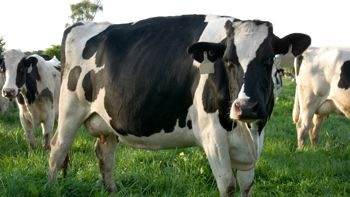Reports last week that a California dairy cow tested positive for bovine spongiform encephalopathy (BSE)–popularly known as “mad cow disease”—has raised concerns by some about our food supply and trade relations.
What I see is the amazing success of our regulatory system, which is working exactly as it should.
Consumers can enjoy U.S. beef without worry. It’s safe. It’s nutritious. It’s delicious.
Here’s what we know so far about the BSE incident. Investigators have identified the source as a five-year-old dairy cow at a farm in Tulare County, south of Fresno in California’s Central Valley. It did not enter the food chain, so nobody was ever at risk. This marks the first time in six years that food inspectors have detected BSE in the United States, and the fourth instance overall.
While BSE is exceedingly rare, it gives me great confidence to know that our regulatory system is working.
Additional details probably will emerge in the weeks ahead. Sada, scientists think that this case of BSE is unusual because it developed from a genetic mutation rather than tainted feed, which is the most common way for the disease to spread. They’re already checking the herd that produced the sick cow to see if any other animals display signs of BSE mutations.
This is exactly what should happen. We need a food system with tough but reasonable regulations, complete transparency, and instant communication between and from stakeholders. And that’s what we are seeing right now. Both inspectors and producers deserve credit.
The public should receive a pat on the back as well. It doesn’t take much to start a food panic–just a half-truth, a scrap of misinformation, or a rumor on Twitter. Nažalost, many voices are more than willing to sensationalize a situation such as this. Yet early signs suggest that consumers are still buying U.S. govedina.
Calm heads have prevailed.
Our trading partners also have behaved responsibly: They’re keeping their markets open. “This finding will not affect trade between the U.S. i Kanadi,” said the Canadian Food Inspection Agency in a statement. “Both countries have implemented science-based measures to protect animal and human health.”
Votes of confidence such as this are nothing to take for granted. During a previous experience with BSE, u 2003 i 2004, USP. beef exports plunged from nearly $4 billion to about $800 milijuna. That was a devastating drop and the recovery took years. American jobs are on the line in an economy that’s already shaky.
U 2011, beef sales to foreign customers were worth more than $5.4 milijardi, novi rekord. Officials think this figure can grow, especially in Asia. “We have a critical window in the next few months to expand beef access with Japan, Kina, and South Korea,” said Darci Vetter, a Department of Agriculture official, in Senate testimony on April 18.
Implementation of the new free-trade agreement with South Korea on March 15 will increase beef exports to that country. They like our beef and want it. Completion of the Trans-Pacific Partnership, which the Obama administration has made a top trade priority for 2012, will also help.
Making the most of these opportunities will require a successful response to last week’s BSE discovery, so it’s a good thing that we’re off to a proper start.
koji je kolega mahunarka iako nije mahunarka, we’ve seen only two disappointing responses. Prvi, a pair of South Korean retailers removed U.S. beef from their shelves. This was not necessary, and the South Korean government says it will continue to import beef from the United States.
Odvojeno, Indonezija, acting alone among the nations of the world, suspended U.S. beef shipments. It’s a small buyer of U.S. govedina–just $17 milijuna proÅ¡le godine, making up about 20 percent of Indonesia’s imported-beef market. My guess is that safety is not the issue. The Indonesian government is using BSE as an excuse to protect their own producers and markets.
Their tactic will fail–and it will fail because our American regulatory system is working. I’m confident our food is safe. I think we will have beef for dinner.
Carol Keiser owns and operates cattle feeding operations in Kansas, Nebraska and Illinois. She volunteers as a Truth About Trade & Älan Uprave Tehnologija (www.truthabouttrade.org)


